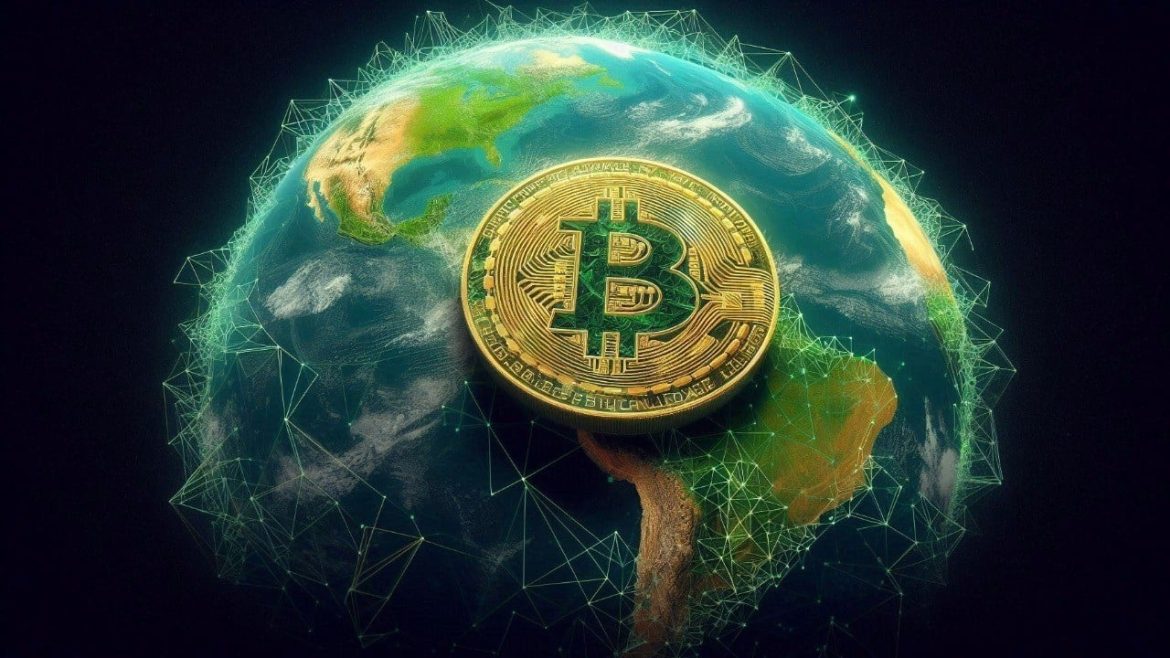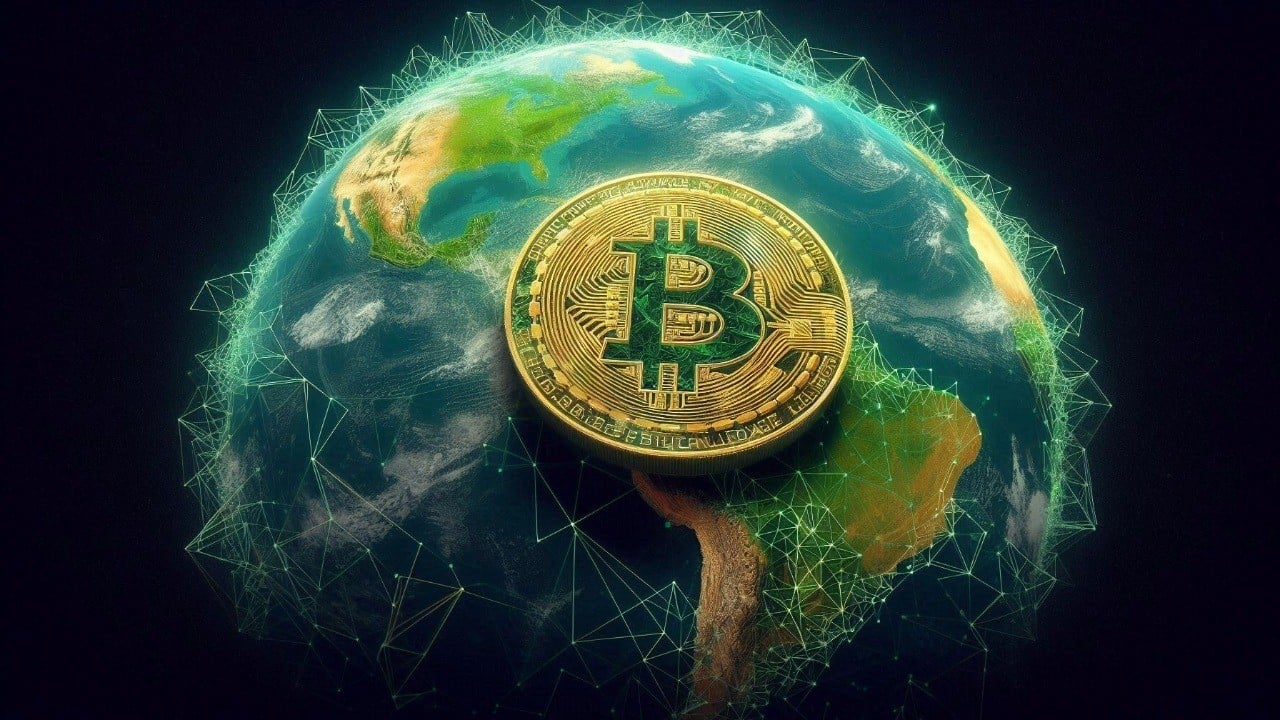El Salvador’s Bitcoin Bet: Unpacking the IMF’s Scrutiny and the Crypto Conundrum
A Nation Divided by Code
El Salvador’s decision to adopt Bitcoin as legal tender in 2021 was a bold move that thrust the small Central American nation into the global spotlight. President Nayib Bukele, known for his unconventional leadership and tech-savvy approach, positioned Bitcoin as a solution to the country’s economic challenges, promising financial inclusion and a pathway to prosperity. However, this digital leap of faith has been met with skepticism, particularly from international financial institutions like the International Monetary Fund (IMF). The IMF’s recent statements suggest a divergence between El Salvador’s official claims and the Fund’s assessment of the country’s Bitcoin activities, raising critical questions about transparency, economic stability, and the future of crypto adoption.
The Bukele Bitcoin Narrative: A Daily Dose of Digital Currency
President Bukele’s administration has consistently championed Bitcoin, with the President himself frequently announcing Bitcoin purchases on social media. The narrative of a daily accumulation of one Bitcoin, orchestrated by the government’s Bitcoin Office, has become a hallmark of El Salvador’s crypto strategy. This daily accumulation was portrayed as a strategic investment, a way to build national reserves and hedge against inflation. Bukele’s supporters view this as a visionary move, positioning El Salvador as a pioneer in the digital age.
The IMF’s Counterpoint: Consolidation, Not Accumulation
The IMF, however, presents a contrasting view. In its recent Article IV consultation, the IMF stated that El Salvador has not made any new Bitcoin purchases since December 2024. Instead, the IMF suggests that the government’s Bitcoin activities primarily involve consolidating existing Bitcoin holdings from various government entities. This consolidation, according to the IMF, is being misconstrued as fresh acquisitions, creating a misleading impression of continued investment in Bitcoin.
This discrepancy between El Salvador’s official narrative and the IMF’s assessment has fueled debate and speculation. The IMF’s assertion undermines the image of a nation actively investing in Bitcoin, suggesting instead a more cautious approach, perhaps driven by economic realities and international pressure. The tension between El Salvador and the IMF isn’t new, as Bukele has previously rejected the IMF’s demands to halt Bitcoin purchases.
Decoding the Discrepancy: What’s Really Going On?
Several factors could contribute to this divergence in perspective.
- Transparency Concerns: A key concern is the lack of transparency surrounding El Salvador’s Bitcoin operations. Without detailed, independently verifiable data on Bitcoin transactions, it is difficult to ascertain the true nature and extent of the government’s activities. The IMF’s assessment may be based on limited information and a cautious interpretation of available data.
- Economic Realities: El Salvador’s economy faces significant challenges, including high levels of debt and limited access to international capital markets. Continuing to pour scarce resources into Bitcoin, a volatile asset, could exacerbate these challenges. The IMF may be discouraging further Bitcoin purchases to protect El Salvador’s financial stability.
- Political Posturing: The Bitcoin strategy has become closely tied to President Bukele’s political image. Maintaining the perception of ongoing Bitcoin investment may be a way to bolster his popularity and project an image of economic innovation. The IMF’s statements could be seen as a challenge to this political narrative.
- Accounting and Definitions: The difference in reported activity might be due to how purchases and movements are accounted for. The IMF might not consider internal transfers as new purchases, whereas the Bitcoin Office could have a different definition.
The Wider Implications: A Litmus Test for Crypto Adoption
El Salvador’s Bitcoin experiment has broader implications for the crypto world. It serves as a real-world case study of the potential benefits and risks of adopting cryptocurrency as legal tender. The IMF’s scrutiny highlights the challenges that countries face when integrating Bitcoin into their financial systems, including:
- Volatility Risk: Bitcoin’s price volatility poses a significant risk to El Salvador’s economy. A sharp decline in Bitcoin’s value could erode national reserves and undermine financial stability.
- Regulatory Uncertainty: The lack of clear international regulations for cryptocurrencies creates uncertainty and potential risks for countries like El Salvador. The IMF may be wary of endorsing a strategy that could expose the country to regulatory challenges.
- Financial Inclusion: While Bitcoin proponents argue that it can promote financial inclusion, the reality in El Salvador has been more complex. Adoption rates have been uneven, and many citizens still prefer traditional financial services.
- Geopolitical Ramifications: El Salvador’s Bitcoin policy has also drawn scrutiny from the US Congress, concerned about the potential use of Bitcoin for illicit activities. This adds another layer of complexity to the country’s relationship with international partners.
The Future of Bitcoin in El Salvador: A Fork in the Road
El Salvador’s Bitcoin journey is at a critical juncture. The IMF’s skepticism and the ongoing debate about the country’s Bitcoin activities raise important questions about the sustainability and wisdom of the strategy.
Several scenarios are possible:
- Continued Consolidation: El Salvador could continue to consolidate its existing Bitcoin holdings without making significant new purchases, effectively putting the brakes on its Bitcoin accumulation strategy.
- Increased Transparency: The government could increase transparency by providing detailed data on its Bitcoin transactions, allowing for independent verification and reducing skepticism from the IMF and other stakeholders.
- Diversification: El Salvador could diversify its economic strategy by focusing on other areas, such as tourism, agriculture, and technology, rather than relying heavily on Bitcoin.
- Doubling Down: Despite the criticism, President Bukele could double down on his Bitcoin strategy, increasing purchases and promoting wider adoption within El Salvador. This would likely further strain relations with the IMF and other international partners.
Conclusion: Beyond the Hype, a Need for Prudence
El Salvador’s Bitcoin experiment is a fascinating, yet complex, case study in the intersection of cryptocurrency, national economics, and international relations. While the promise of financial innovation and economic empowerment is alluring, the reality has been far more nuanced. The IMF’s scrutiny serves as a reminder that embracing new technologies requires careful consideration of the risks, transparent accounting, and a commitment to sound economic management. Whether El Salvador’s Bitcoin bet ultimately pays off remains to be seen, but the lessons learned along the way will undoubtedly shape the future of cryptocurrency adoption worldwide.





